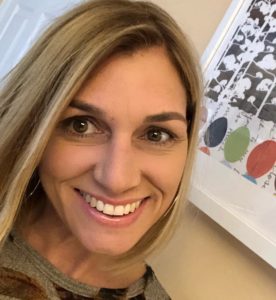But all I want to do is just write for a living
It’s not uncommon when I run a writing workshop, show up to Career Day at the local college, or have lunch with an aspiring writer, to hear this lament or some form of it.
It’s frustrating for writers at the beginning of their professional journey (and – let’s face it – for those farther along on the journey as well!) to hear the hard-boiled stats of erratic writing salaries, diminishing advances, and the increasingly high costs of marketing that are expected to be borne by authors themselves.
It’s becoming very difficult for writers to “just write for a living.” Or maybe it was always this difficult, but we didn’t talk about it, or if we did, word didn’t travel quite as fast as it does these days.
In a study released in 2015, the Author’s Guild reported that “the earnings of more than half of American authors fell below the US federal poverty level” in the year prior.
A quick anecdotal survey at writing conferences and book festivals yields the same results: New York Times bestsellers and newly pubbed authors alike are often holding onto day jobs that subsidize their craft.
When writing students or author friends ask when they can give up “day jobs” and focus on “just writing for a living,” I dole out the good advice I learned from corporate lawyer turned internationally renowned LEGO brick artist, Nathan Sawaya.
Sometimes you simply have to wait for your website to crash.
When I first “met” Nathan, it was during a 2014 telephone interview for a chapter in my nonfiction book, Lawyer Interrupted, (ABA Publishing, 2005). Nathan was getting ready for the Dublin opening of his ART OF THE BRICK exhibit and had just finished working on the set of a Lady Gaga video; he was and is extremely commercially successful for his art – no small feat in this day and age.
Years of work to be an overnight success
Yet, when we spoke in 2014, Nathan recalled the days of struggling for commercial success for his art. In fact, Nathan worked on his art at night for years alongside a corporate litigation career, a day job that he admittedly hated, but one that paid the bills while he worked at night on his art. Nathan would post pictures of his art on his art blog and started doing more and more commissioned pieces.
One night, he reports that his “website crashed.”
Literally.
It crashed because of so many hits on the art blog. And that was the moment Nathan knew that his full transition from the law would be financially viable.
Turning the financial corner
Since meeting Nathan, I use the “website crash” as a metaphor for the moment when self-sustaining financial viability occurs for pursuing one’s craft, whether it’s art, writing, or any other professional dream.
And the truth is, it might take months or years. You might have to pay down a mortgage, or a debt, or get the kids launched to college first. That’s ok. You’re not powerless during the wait. That’s the reason the metaphor of a “crashing website” works so well. It’s not passive. You have to build your website, maintain it, create content for it.
In fact, working on your proverbial “website” may actually make the drudgery of your day job more palatable.
You’ll work and create (and save) and wait, and work and create and save and wait some more. And then when your website crashes, you’ll be ready for it.

 Amy Impellizzeri is a former corporate litigator, start-up executive, and award-winning author of fiction and non-fiction. Her debut novel, Lemongrass Hope (Wyatt-MacKenzie Publishing 2014) was a 2014 INDIEFAB Book of the Year Bronze Winner and a National Indie Excellence Awards Finalist. Amy’s newest novel, The Truth About Thea, (Wyatt-MacKenzie Publishing 2017), has been called “clever, mind-bending and darkly original” (NYT Best-Selling Author Heather Gudenkauf) “thrilling and well-plotted” (NYT and USA TODAY Best-Selling Author Julie Cantrell) and a “perfectly compelling read all the way to the shocking end.” (USA TODAY AND WSJ Best-Selling Author Kimberly Belle).
Amy Impellizzeri is a former corporate litigator, start-up executive, and award-winning author of fiction and non-fiction. Her debut novel, Lemongrass Hope (Wyatt-MacKenzie Publishing 2014) was a 2014 INDIEFAB Book of the Year Bronze Winner and a National Indie Excellence Awards Finalist. Amy’s newest novel, The Truth About Thea, (Wyatt-MacKenzie Publishing 2017), has been called “clever, mind-bending and darkly original” (NYT Best-Selling Author Heather Gudenkauf) “thrilling and well-plotted” (NYT and USA TODAY Best-Selling Author Julie Cantrell) and a “perfectly compelling read all the way to the shocking end.” (USA TODAY AND WSJ Best-Selling Author Kimberly Belle).
Amy is a frequent invited speaker at Lawyers in Transition Meetings, annual Bar conferences, and creative writing workshops across the country. Amy is a member of the Tall Poppy Writers and the Past President of the Women’s Fiction Writers Association. She is a 2018 Writer-in-Residence at Ms-JD.org. Keep in touch.





